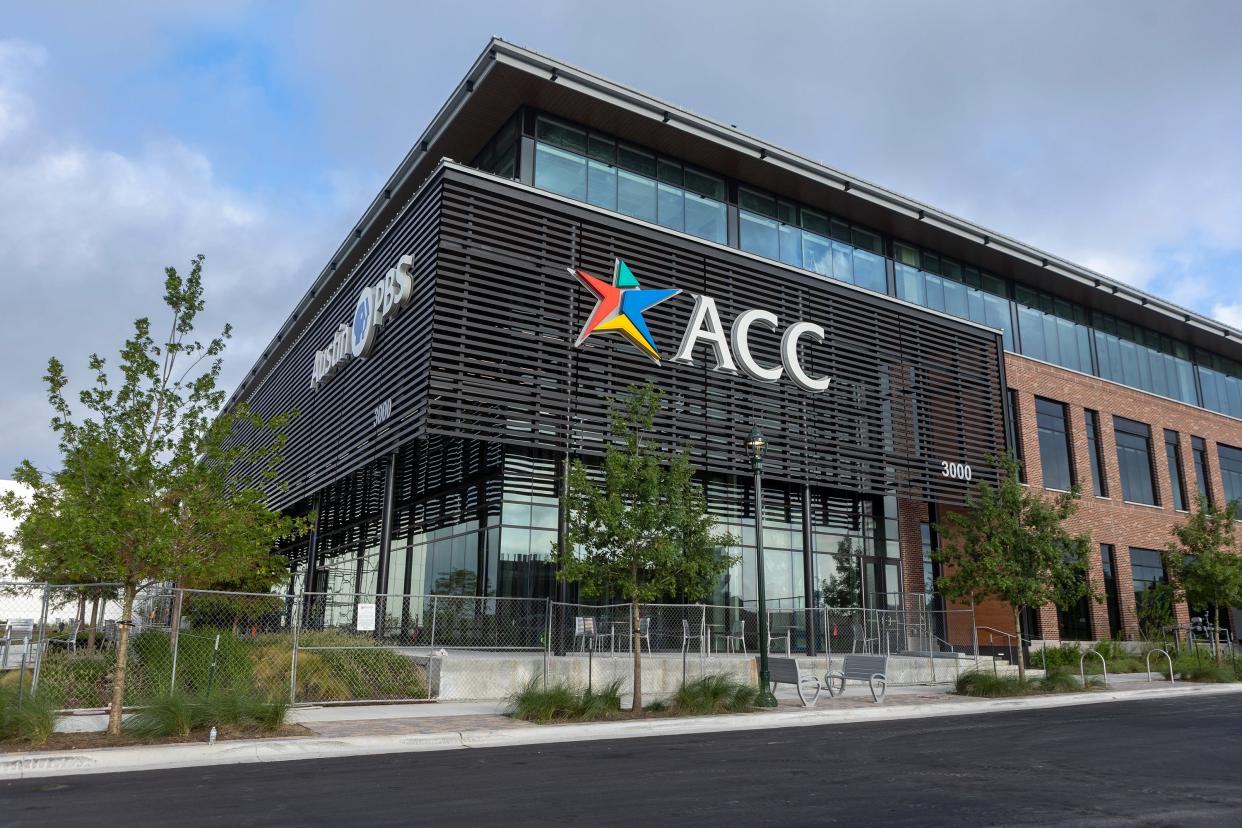Texas Senate approves bill to invest $430M in additional funding for community colleges

- Oops!Something went wrong.Please try again later.
The Texas Senate unanimously approved a bill Friday to allocate nearly $430 million in additional funding over two years for the state's 50 community colleges, including Austin Community College.
The Senate's version of House Bill 8, authored by Sen. Brandon Creighton, R-Conroe, would award money to colleges based on the number of students who earn "credentials of value," complete at least 15 hours of courses and transfer to a four-year university, enroll in dual credit courses, or take courses that "apply toward academic or workforce program requirements."
It would also create the Financial Aid for Swift Transfer program to enroll high school students who are economically disadvantaged in dual credit courses at no cost.
"What we do for our community colleges is the future of Texas," Creighton, chair of the Senate Higher Education Subcommittee, said on the Senate floor. "The percentage of students seeking a higher education path forward and our adult learners (are) so important to recognize in this process, and what legislation like this will do for both of those subcategories will be just life-changing, generational changing for them and their families."
The Senate added minor provisions from other higher education bills to HB 8, including sections on privacy and developing tools to help students assess the value of degree programs and certificates offered within the state.
More: UT System approves up to 5.2% tuition increase for graduate, nonresident students
The House approved HB 8 last month, and the lower chamber now needs to sign off to the Senate's revisions to the bill before it can be forwarded to Gov. Greg Abbott to sign into law. The bill is one of House Speaker Dade Phelan’s priorities this legislative session.
Rep. Gary VanDeaver, R-New Boston, initially filed the bill, which has support from all the community colleges in Texas as well as several local and statewide business leaders, higher education advocates and other community college stakeholders.
More: Austin Community College to launch bachelor's degree program in cybersecurity in fall
Earlier this month, the conference committee for HB 1 — the House's proposed state budget — approved adding a provision in the budget that would increase funding for community colleges by $214 million per year if HB 8 passes.
The budget, if approved in its current form, would provide a total of $2.27 billion to community colleges over two years, but the proposal still needs final approval from the committee, House, Senate and governor.
HB 8 is modeled after recommendations the Texas Commission on Community College Finance released late last year, which include providing more support for small and rural-serving colleges in areas with lower property values and awarding funding to each school based on student success.
Community colleges in Texas collect revenue through a combination of property taxes, tuition and fees, state appropriations, and various other sources. The bill would guarantee a certain level of state funding for smaller and rural community college districts that aren’t able to raise as much tax revenue as those in urban districts.
HB 8, however, does not outline the exact amount of additional funding each college would receive. If it passes, the Texas Higher Education Coordinating Board — which oversees colleges and universities in the state — would decide the exact formulas.
More: Texas lawmakers could give billions to universities for research
Renzo Soto, a policy adviser for Texas 2036, said by tying college funding to student outcomes, the bill helps ensure that community colleges will continue to benefit students, employers and the state. Texas 2036 is a think tank focused on preparing the state for growth.
"HB 8 will benefit hundreds of thousands of Texas students, from high school students to incumbent workers, every year as they pursue the education or workforce training they need for a meaningful career," Soto said in a statement.
"The new finance system will fundamentally shift how community colleges support their students, ultimately providing them with more valuable options as workforce programs receive as much of an emphasis as academic programs," he said.
This article originally appeared on Austin American-Statesman: Texas Senate votes to invest $430 million more in community colleges

